Once upon time, in the faraway land of Srinagar, lived a raja named Sher Ahmad Khan. He was proud, ferocious and powerful. His opponents, subjects and Rani (his wife) feared and respected him. Even though he was a just man, he had a dark arrogant side— the Raja Sher Ahmad killed all his daughters at birth. He could not face the shame of another man touching any daughter of his.
Then, one day, Rani gave birth to yet another baby girl. Unable to bare the inevitable, she called in her maid, “Here, take my daughter and give her away to another family that can raise her. Do not tell the Raja what I’ve done!” she said with trembling lips.
“You have my word”, the maid replied and swiftly grabbed the crying baby from Rani’s arms. Rani, with hair plastered to her face and on the brink of collapsing, watched the maid escape with her little girl, knowing that while she would never see the little child grow to become a woman, at least Rani would give her a chance to live. When the Raja returned to the palace that day, he was told that the baby entered the world in death.
Rani sat by her window for many nights and whilst she was embroidering and looking out the window, she sighed and thought of her little princess growing-up in the arms of loving parents. The nights and days passed this way until ten years went by and the Rani bore the Raja a son, eventually followed by another.
The Raja had many spies throughout his kingdom to keep control of the city. One day his spy told him that one of his daughters escaped death and lived in a poor man’s home in his kingdom. He could not believe his ears. “Rani! Come here at once!” he bellowed. “Is it true that you gave birth to girl and have kept her hidden from me?”
Rani quivered. She twisted her sweaty hands together and thought surely this was her end, “Yes. It was a mother’s love that did this. Please don’t harm her. She is only a little girl!” But her words fell on deaf ears. The Raja spared his wife. But the little princess was not so lucky. She met her death like all her other sisters.
And so the years passed until Sher Ahmad Khan died and his sons divided the kingdom of Srinagar amongst themselves. One of them was named Raja Afzal Khan and he inherited the small state of Karan. Like his father, Raja Afzal was a clever man, but unlike his father, he was a kind one. His wife bore him two daughters and no sons. His enemies were many and all had their eyes on his vast estate. He knew that with no sons to pass the lands on to, his wife and daughters would lose everything when he died.
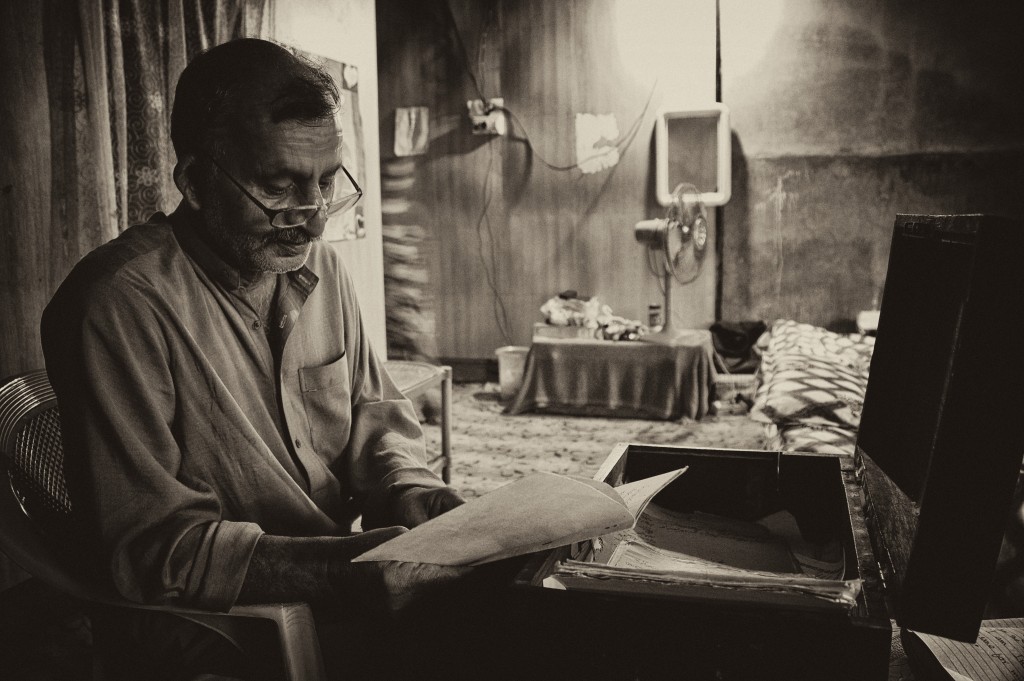
Nusrat’s husband (the family we stayed with in Kashmir) showed us historical letters written by the rajas of Kashmir and the British army dating over one hundred years.
Fearful of being poisoned, he always ate from a special clay pot that cracked whenever the food was fatal. He told his faithful servant, Azeem, to take his two daughters to safety if anything happened to him. In those days, the Sikhs were trying to gain control of Kashmir. One of them joined forces with Raja Afzal’s greedy and scheming relatives to kill the raja once and for all. They bribed the cook to poison the dinner. Unbeknownst to Raja Afzal, the food that night was not served in his special clay pot. One by one the family members, including his wife, grasped with pain and shock. The cold moon hiding behind the ominous black clouds shined brightly on the still bodies sprawled across the floor. However the raja was not entirely unlucky—the daughters were out of town visiting a relative. When Azeem came to the dining hall, the oath he made sprung to his mind. Re raced to where the two daughters, Khulsheed and Humida were staying. “Hurry! Dress before they come!” hissed Azeem to the girls.
Humida rubbed the sleep from her eyes, “What is wrong with you Azeem? Let us sleep!”
“I don’t have time to explain. Your family has been poisoned and you must escape before others come to kill you too!” The girls began to cry uncontrollably but agreed to follow Azeem on his horse.
Azeem knew that he couldn’t protect both girls at the same time, so he sent Khulsheed Begum to the west (which is now Pakistan) and kept Humida Begum with him as he headed further east. The girls lost everything: their parents, home, land and wealth. But those who knew their story respected them well.
At the tender age of 13, Khulsheed was married to man named Hakim Peer Fateh Shah. He was a gentle-soul but at least ten years her senior. He had agreed to marry her in order to give her protection but hadn’t looked upon her until they were married. Fateh Shah was astonished by Khulsheed’s beauty. Her hair was as black as a raven, her skin was as translucent as the glacial sea and her spirit was as strong as a bull. Fateh Shah taught her reading, writing, cooking, and cleaning–things she had never done before in her life. She settled into her new life and gave birth to many sons and daughters, but her heart ached to see her sister’s face, her only surviving blood relative. She exchanged some letters with Humida in Kashmir and was content for now knowing that her older sister was safe.
But as times change, so do rulers and borders. Kashmir was soon under siege from India and Pakistan and the borders of Jammu Kashmir were closed off to her forever. Once again, she grieved quietly for her loss. The years passed away until she became a grandmother to many children. One of her grandchildren named Nasira stood apart from the others. While the other boys played with their toys and the girls played with their dolls, Nasira sat in rapture by grandma Khulsheed’s feet and listened closely to her tales of Kashmir.
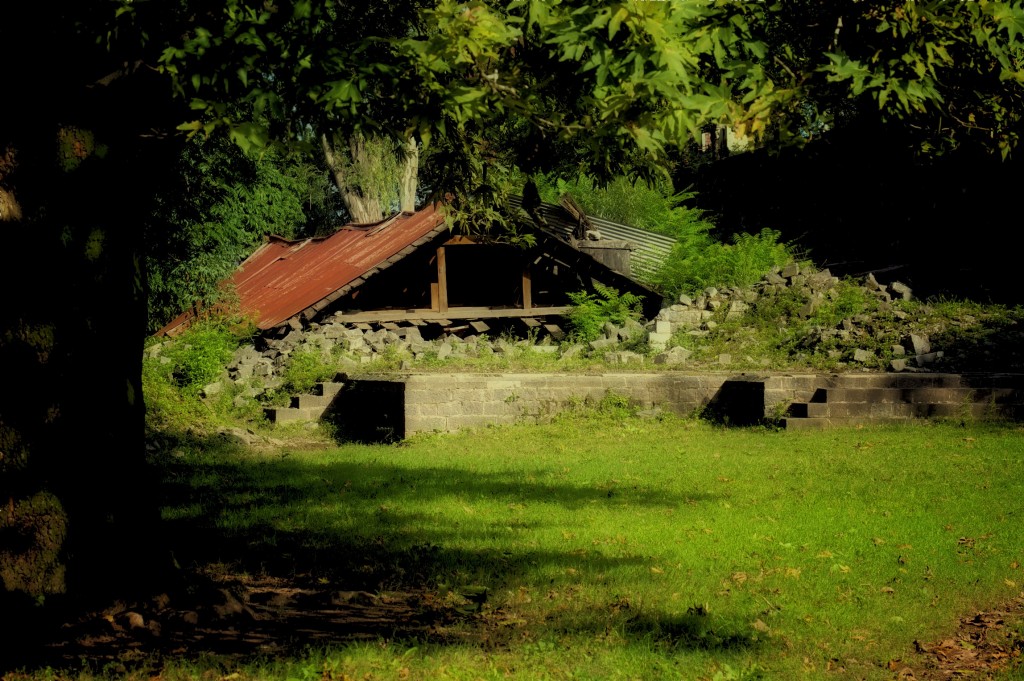
The 2005 earthquake in Kashmir left families devastated. This structure originally was the family’s library. Nusrat’s husband, unable to cope with the loss, still hasn’t removed the rubble and remains of their destroyed homes. They built a house on the other side of the property made completely of wood.
One fine day many years later, Nasira, now a mother herself, found her grandmother crying. Khulsheed Begum was reaching ninety and missed her sister dearly. Without a word to anyone, Nasira booked a flight to Delhi, India that week. It was 1989 then. She knew it would be dangerous, she knew she was reckless, and she knew the odds were against her, but her determination outweighed her fears.
After lots of pleading and negotiating, Nasira found her way into the home of Nasir, the son-in-law of Sheik Abdullah, who controlled Srinigar. Nasir was a silk carpet supplier and was well connected. He tried to convince Nasira that her plans were foolish. At least four decades have gone by since last hearing from Humida Begum and she was most probably dead by now. Nasira’s blood ran thick with stubbornness, a trait, no doubt, she inherited from her great-great grandfather.
Finally Nasir gave her a jeep, driver, bodyguard and strict instructions to return before curfew. She went to Nonamay (it’s a small town up in the mountains; can’t be found on a map), the last place Humida had sent letters from. The jeep barely made it out of town before a bomb went off behind her. Her heart pounded hard, but she kept on going until she arrived at the house. She stood hesitantly before the door. There could be complete strangers living on the other side of that wall and her whole journey could have been for nothing. Holding her breath, she knocked on the door, until it creaked slowly open. “Who are you?” the man asked. “I am Khulsheed Begum’s granddaughter from Pakistan”.
The man narrowed his eyes, “Get out of here. I don’t know who that is,” and began to shut the door.
“No wait! Does Humida Begum live here? Daughter of Afzal Khan?”
The man halted the door and quietly looked at Nasira. “Could this be…is it possible?” he thought to himself. He responded, “Yes, she is here and I am her son, Abrahim. Come in”. He let her and the bodyguard inside and he ran-up to give his mother the news. The whole family of women, men and children had surrounded her by the time her great uncle took her to meet her grandmother’s sister.
She slowly opened the door to find a tiny ninety-year-old woman sitting on a pile of richly colored blankets. She had her arms outstretched with tears streaming down her wrinkly cheeks. “Come here my child. Come here in my arms. Let me look at you,” and with that she tightly embraced Nasira for a long time. Humida was finally holding her sister’s blood in her arms. Humida asked endless question about what her sister looked like now, how many children did she have, what were everyone’s names, and so on. There were a million questions she wanted to ask.
These pictures were taken during a 9-hour hiking trip. We took a break at the top of the mountain and found villagers living there, farming the lands and raising cattle.
The sun was beginning to make its way down and the bodyguard told Nasira it was time to leave. Humida instantly grabbed Nasira’s arm, “She can’t go yet! Please let her stay for this one night”.
The bodyguard was at a loss. He felt touched by the scene before him and couldn’t bring himself to separate the two. That night a feast was prepared and everyone, even the small children, stayed up until the roosters began crowing at sunrise. Humida and Nasira were glued together that whole night, but before long it was time for Nasira to leave. Humida pulled out an intricately woven blouse from her trunk and handed it to Nasira, “I am no longer that princess. I don’t have jewels or a grand palace. We are not rich anymore. Please give this small gift to Khulsheed and tell her that her sister wore this and she came remember me by it.”
As the jeep drove down the mountain and pass fields of apricot and almond trees, Nasira held on tightly to Humida’s blouse. She had taken a ton of photographs of the entire family. Who would believe she had made this perilous journey and found the lost daughter of Afzal Khan, the son of a raja who killed all his daughters? She needed proof and the pictures and blouse were it.
Nasira safely made it back to Pakistan and presented the gifts to her grandmother. “Oh, if I had known! I would have given my sweet sister a token too. You have fulfilled my last wish!” cried Khulsheed. The two sisters from Kashmir were at last united in spirit. Sadly both sisters passed away within a year and never got to meet in person.
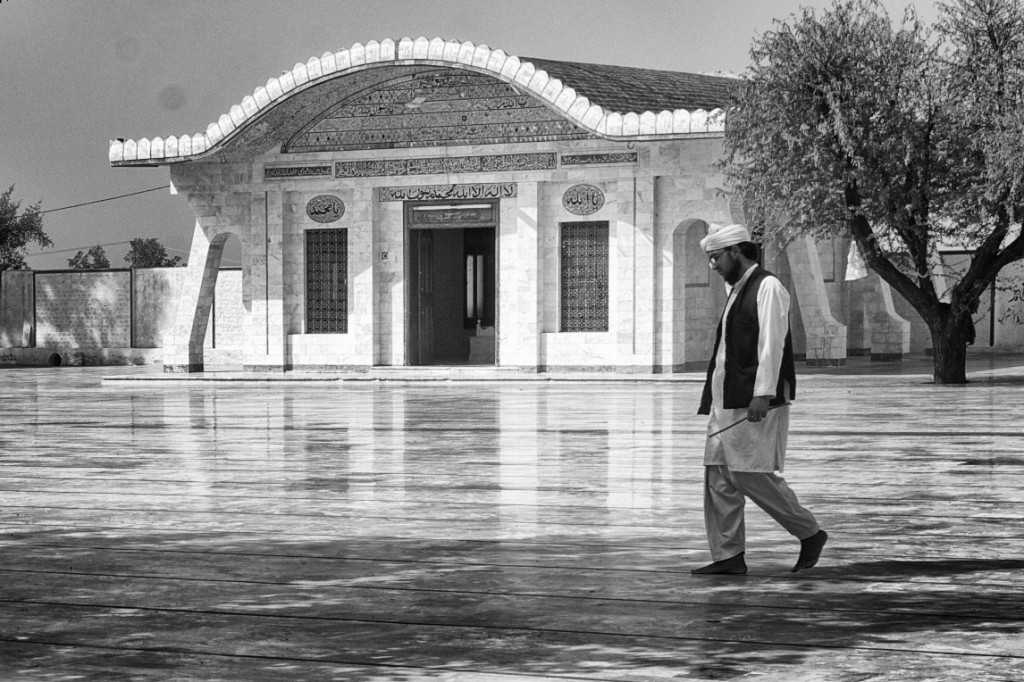
The tomb of Khulsheed, Peer Hakim Fateh Shah and the rest of the family. It’s located in Merasharif, Pakistan.
With the exception of some of the names, the above story is the true account of my great grandmother and my mother, Nasira. We went to a small town called Muzaffarabad Ghari Dupatta (on the Azad Kashmir side) to visit Nusrat, the great granddaughter of Humida Begum. Unlike many of us, they all remembered their history well. The mountains were treacherous to climb and drive over, but inside those mountains the Kashmiri’s held vast resources of mineral rich spring waters, lush fertile lands, and clean air. The people were as tough as they were generous and hospitable.
I woke up early one morning to the sounds of women talking. I walked outside to the front yard of the house to find fluffy white clouds hovering right below me; they completely covered the view of the valley and I felt like a fairy princess living on top of the clouds. I heard those voices again and saw my mother and Nusrat wiping their tears. They were sharing the above the story with each other and I couldn’t help getting teary eyed myself. I thought of writing about the beautiful mountains of Kashmir but opted writing of the beautiful story instead. It felt surreal to be in Kashmir and to be sharing a meal with my great-grandmother’s relatives, ones she never had the privilege of meeting. I understood why Khulsheed Begum missed Kashmir so much—it is a magical land full of loving people. A people that kept history and memories close to their hearts.
.
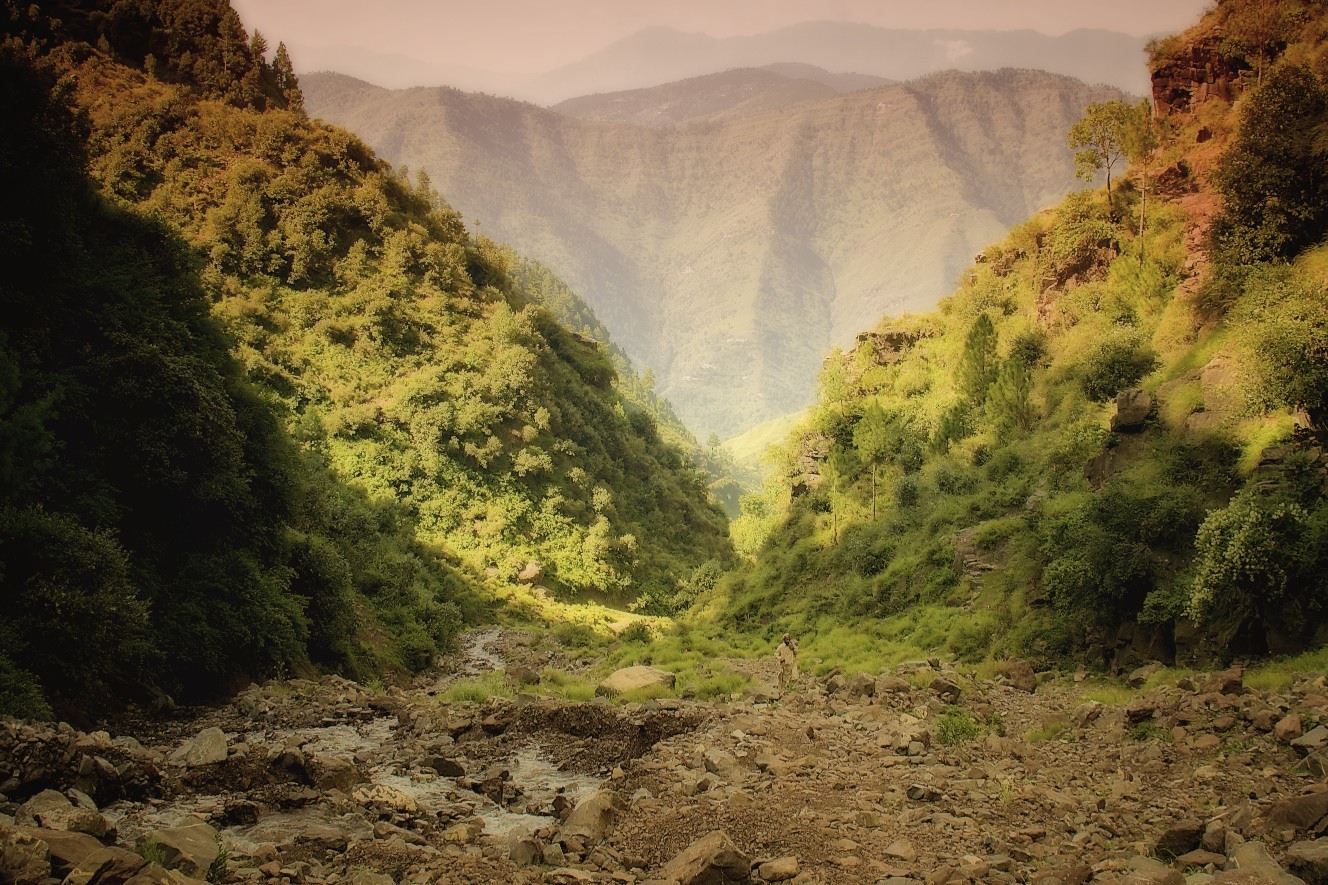
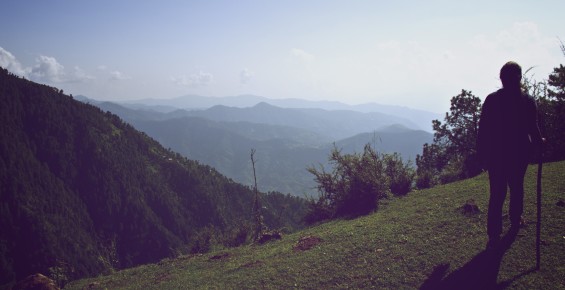
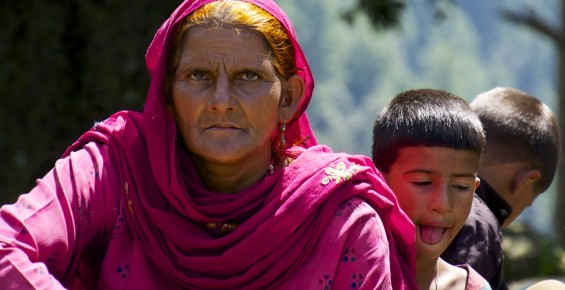
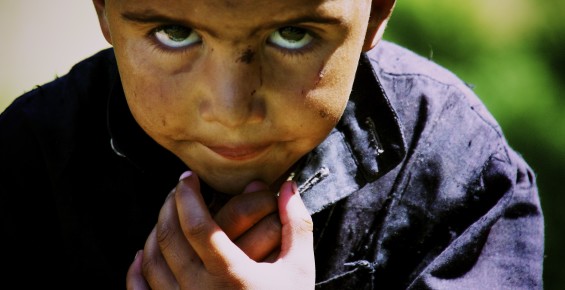
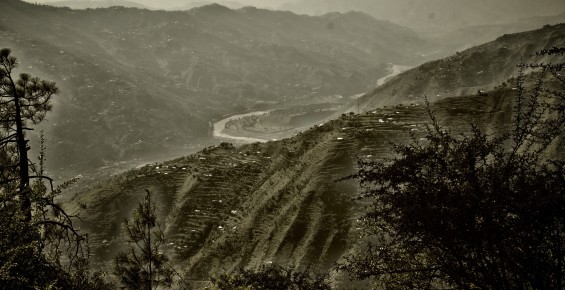
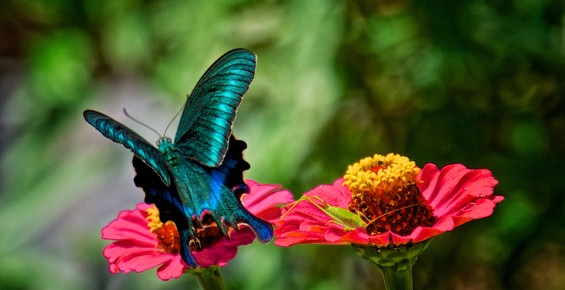
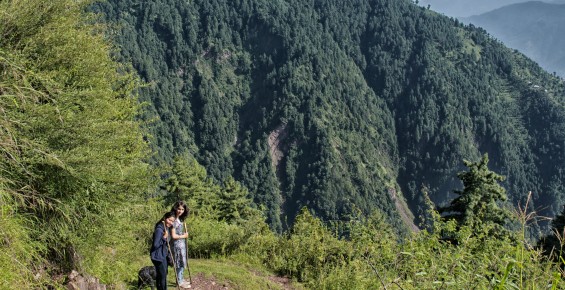
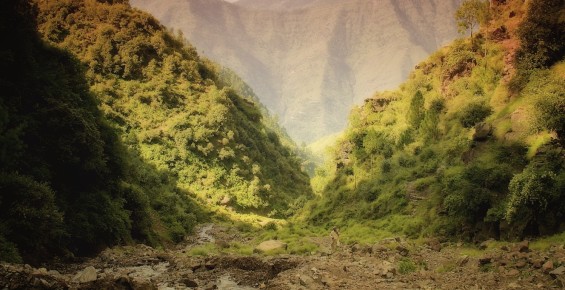
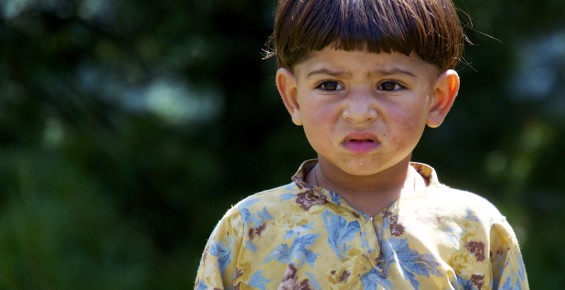
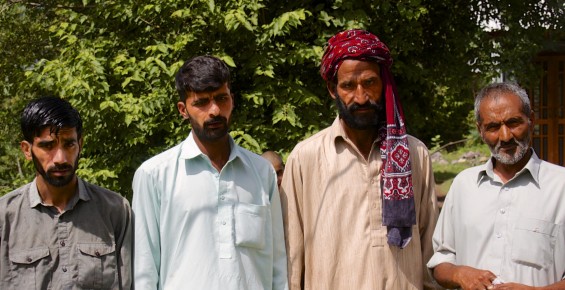
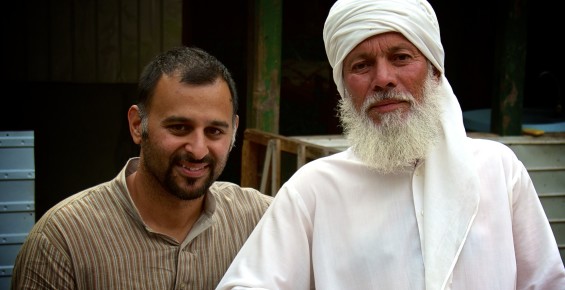
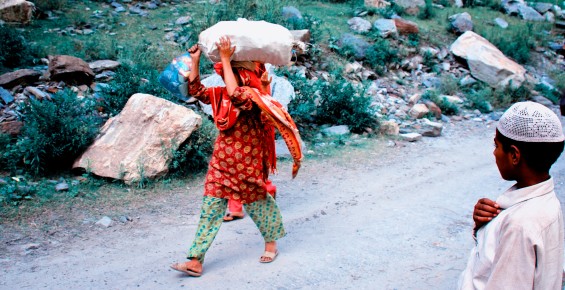
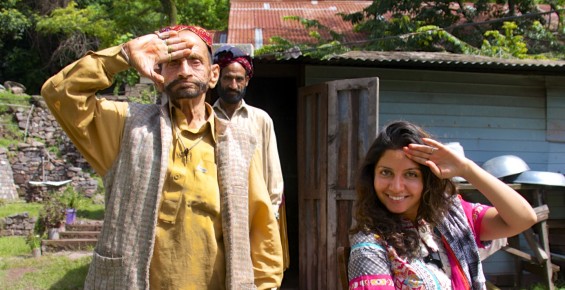
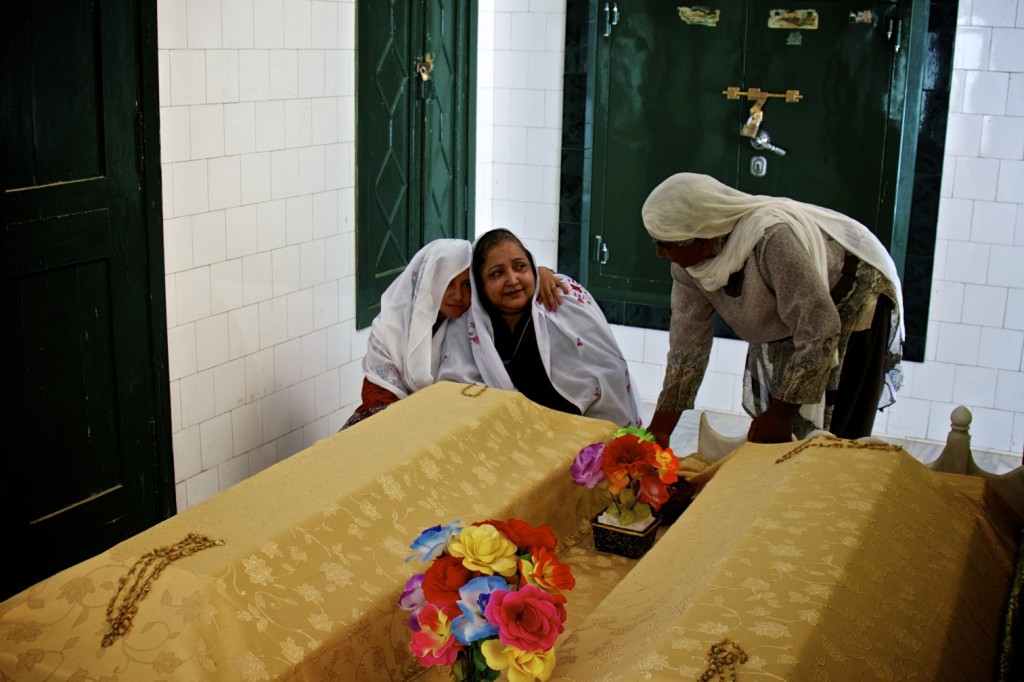
very touching story. glad to hear from you guys. safe travels
Thank you!
this is very beautiful and the photos are incredible.
I can’t help tears rolling down my eyes by reading the above brutal historical lines of our ancestors. Nice Attempt To Keep Our History Alive… God Bless You!…